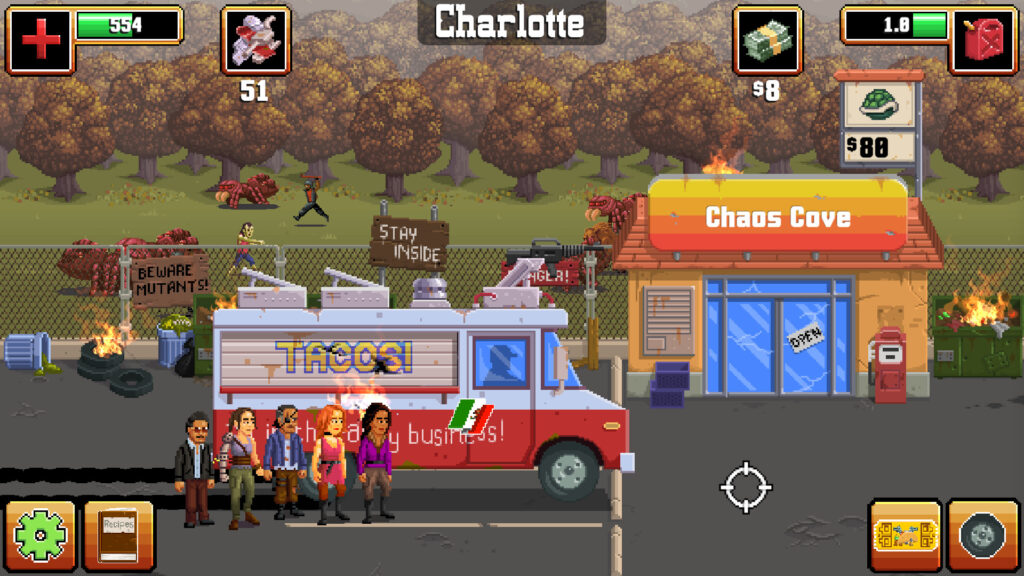Imagine yourself trying to build a house without a solid foundation. You might get some walls up, but the whole thing would likely crumble at some point, right? The same goes for mobile games (or any game, really). They need a strong foundation, and that’s where game engines come in.
These powerful programs provide the core structure, mechanics, tools, and abstractions to bring your craziest game ideas to life. But which ones are the best? In this article, we’ll present 7 of the most popular Android game development engines that are all the rage so you can choose the one best suited for you!
Read also: How to build an AR app in 5 easy steps
Top 7 Android game development engines for 2025
Unity

Unity, a name synonymous with game development, was born in 2005 by the ambitious minds at Unity Technologies. Thanks to its user-friendly interface and powerful features, this engine quickly gained traction, making it a favorite among seasoned veterans and budding game developers.
One of Unity’s biggest strengths is its versatility. It’s like the Swiss Army Knife of engines, capable of handling anything from simple 2D games to complex 3D worlds. You’ll find it powering mobile games, console titles, popular desktop games, and even virtual reality (VR) experiences.
Unity also boasts a comprehensive asset store, allowing developers to access pre-made models, textures, and scripts. You’ll mostly see those assets used as placeholders for the actual graphics and models, but sometimes they’re good enough to make it to the final product.
Speaking of popular games, Unity has been the foundation underlying countless hits.
From the endless runner sensation Temple Run and the puzzle masterpiece Monument Valley to the popular Pokémon Go, we can’t ignore Unity’s impact on the mobile gaming scene.
All in all, with its robust features and massive community, Unity is guaranteed to be a prime choice for developers looking to create engaging games for the Android platform.
Unreal Engine
Unreal Engine, another powerhouse in the game development world, was created by Epic Games and first released in 1998. It quickly gained a reputation for its stunning graphical capabilities and performant games, making it a top choice for developers worldwide.
While mostly associated with AAA games, this game engine can hold its own for mobile games. Relatively user-friendly, Unreal comes with a visual scripting language called Blueprint, allowing beginners to create game logic without writing lines of code. This drag-and-drop interface lets developers connect different events and actions, making it easy to understand and build complex gameplay mechanics.
It also boasts impressive tools for animation, physics, and sound, making it perfect for building immersive and detailed mobile experiences.
Many popular games were developed with Unreal Engine, including Tower of Fantasy, ARK: Survival Evolved, Season, and Omega Strikers.
Godot Engine

Godot Engine is a relative newcomer to the game development scene, but it’s quickly gaining popularity among indie developers. It was created by a team of developers and released as open-source software in 2014. In other words, it’s 100% free to use, modify, and distribute as you see fit – a huge win for independent creators.
One of its biggest strengths lies in its accessibility. Unlike many convoluted game engines, Godot boasts a relatively simple interface that speaks to beginners and seasoned developers.
While able to create fantastic 3D games, it shines in the 2D realm, offering a robust physics engine and animation tools, making it perfect for mobile games, which often rely on 2D graphics for their visuals.
If that wasn’t enough, Godot offers its own scripting language, GDScript, which was inspired by Python and is beginner-friendly and easy to learn. It also comes with built-in multi-language support, allowing developers to leverage their previous experience with C# (used in Unity), C++ (Unreal Engine), and other languages (through GDExtensions) for more complex tasks.
Some Android games created with Godot include Alakrean: Fallen Sky RPG, Pancake Tower, and Golf Peaks.
GameMaker Studio 2
With its first iteration launched in 1999, GameMaker Studio is no stranger to the game development world. Its second coming made a niche for itself as a multiplatform (including Android) game development engine.
One of its core strengths lies in its drag-and-drop magic. Much like Unreal’s Blueprint, this visual approach allows creators to build game logic and mechanics without extensive coding knowledge, making it much easier and faster to prototype and iterate on mobile game ideas.
It also has a mobile-optimized workflow, offering features like touchscreen controls, in-app purchases, and mobile advertising integration with no friction. This lets developers focus on the core gameplay experience without getting bogged down in technical hurdles.
GMS 2 also excels at 2D game development, providing a varied set of tools for smooth 2D animations, intuitive physics, and awesome 2D graphics. And it all comes with a more budget-friendly option for a premium Android game development engine.
Solar2D

Solar2D, previously known as CoronaSDK, is yet another option for Android game development. While not as widely recognized as giants like Unity or Unreal Engine, Solar2D was created in 2009 and has since garnered a loyal following of developers, particularly those putting effort into building mobile games.
Solar2D is a relatively simple game engine built on top of the Lua scripting language, known for being easy to learn and write programs with, even for beginners with no prior coding experience. This accessibility makes it a breeze to jump in and start building your mobile game idea, saving valuable development time.
You can also build your game once and deploy it seamlessly across various platforms, including iOS, Android, macOS, Windows, and even HTML5 for browser-based games. And, similar to Godot, Solar2D is fully open-source, so you’ll never have to spend a dime to work with this marvelous engine.
Construct 3
A relatively unknown game engine, Construct 3 holds a special place in the 2D game development scene.
Launched in 2017, it focuses on ease of use, bringing an event-based visual scripting system that allows developers to build core gameplay mechanics and iterate quickly without writing a single line of code. It also supports various features like 2D physics, animation, sound effects, and even basic 3D effects.
Construct 3 has been used to create many mobile games, with genres ranging from simple puzzles to more complex action-adventure titles. While it’s not as widely known as some other engines, its ease of use and strong community support make it an excellent option for beginners and those seeking a fast and efficient development process.
AppGameKit
While other Android game development engines dominate the field, AppGameKit offers a unique path for mobile game creators.
Originally launched in 2019, this engine focuses on accessibility and quick prototyping, coming with a simplified BASIC-like scripting language that is easy to grasp, even for those with no prior programming experience.
Wouldn’t it be great to develop your mobile game and easily deploy it across multiple platforms much like most engines in this list? AppGameKit lets you do just that! With a single codebase, you can target both mobile platforms as well as desktops (Windows, Mac, and Linux).
Furthermore, this engine has a royalty-free licensing model, meaning you pay once and own the license to create and distribute your game commercially. This slashes ongoing fees and revenue-sharing agreements, making it a good choice for those looking to minimize their operational costs.
Conclusion
So there you have it – a peek into the main Android game development engines! Choosing the right one for you is a personal decision that should be based on your experience, project goals, preferred programming languages (or visual scripting if that’s more up your alley), and, of course, your budget.
In the end, the best engine for you is the one that lets you bring your best game ideas to life, so don’t be afraid to experiment and explore – you might be surprised at how quickly you can go from an aspiring game developer to proud creator of your Android game masterpiece.
Speaking of turning your dream game into reality, did you know we’re a full-stack game development company at Main Leaf? With expertise in Unity and Unreal Engine, our team of passionate developers can help you do just that.
Whether you have a fleshed-out idea or a single inspiration spark, we can assist you through every stage of game development, from prototyping and design to programming and launch. We’ll work closely to ensure your project is polished, engaging, and optimized for your target platforms!
Contact us today to learn more and discuss your upcoming game project!

